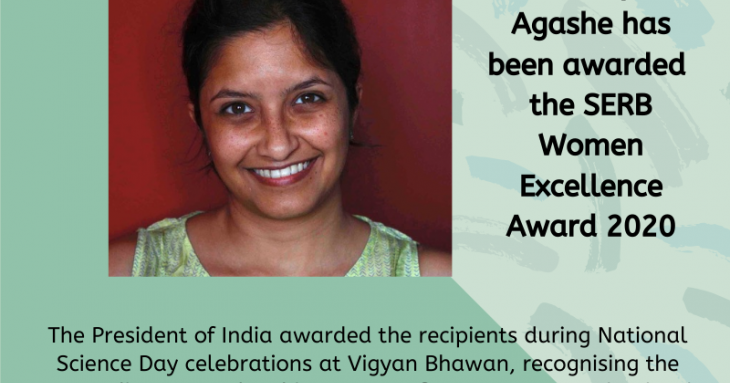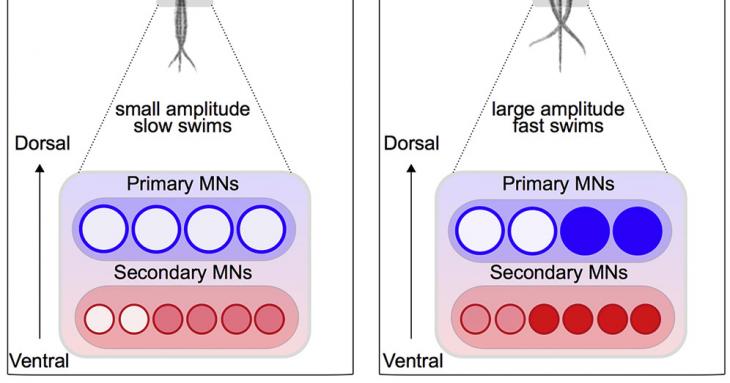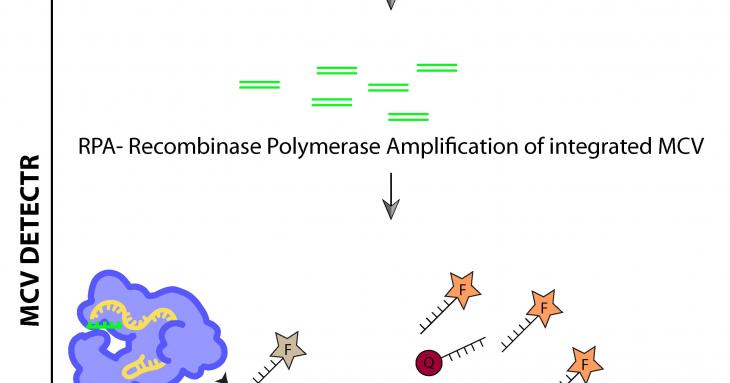-
Congratulations! Dr Deepa Agashe Awarded SERB Women Excellence Award 2020
Dr Deepa Agashe was awarded the SERB Women Excellence Award by the President of India during National Science Day
-
The need for speed: Zebrafish study at NCBS
Whether running away from a predator or to win an Olympic gold, how fast we run determines the final outcome. Locomotion is produced when limb muscles contract in a co-ordinated fashion. This, in turn, is caused by electrical impulses sent by nerve cells called motor neurons located in the spinal cord. Earlier work showed that based on an animal’s momentary needs, brain circuits select a suitable course of action and set the frequency of motion. Then, just like engaging gears in an automobile, spinal ‘speed’ modules are selectively activated to achieve a certain speed.
-
NCBS researchers develop test to detect a virus in cancer cells
Scientists from the National Centre for Biological Sciences (NCBS), Bangalore, have developed a test to detect the presence of Merkel cell polyomavirus (MCV) in Merkel cell carcinomas.
-
New Report Finds That 101 Indian Bird Species Require Immediate Attention
Over 15,500 birdwatchers across the country contribute to a report on the state of India’s birds.
-
How small regulatory molecules are generated in plants
All growth and development in plants are regulated at various levels in the cell, and mediated by proteins
-
Questions of the "Global South": Prof Smita Srinivas' Keynote at the National Law School of India University, and ICCA
On 13th February 2020, Prof Smita Srinivas delivered a keynote speech at the National Law School of India University on "Global South Classification Challenges in Economic Development Plans". The keynote was part of the international seminar at the NLSIU's Institute for Public Policy and a project led by Dr. Anjali Karol, funded by the Urban Studies Foundation with Indian and Colombian scholars looking at urban, regional, and national considerations of planning and policy.
-
Circle of Life at NCBS: Annual Talks 2020
The NCBS Annual Talks 2020 were held from 14th January to 17th January, 2020. Annual talks mark an important event in the campus calendar when everyone comes together, perhaps for the only time in the year, to hear fellow researchers talk about their science. The idea of looking back at the achievements, and the glimpses of the future has been consistent. However, the history of this event has been quite dynamic. The current form of the annual talks has evolved over the years.
-
NCBS team finds how microRNA gene regulators are generated in plants
Image: miRNAs stop specific mRNAs from making proteins. This study shows how specific sequences (shown in black stars) in the hairpin loops from which miRNAs originate are essential for the selection of miRNA regions.
-
NCBS Press Statement: 3rd February 2020
This press release is in reference to media reports that grossly misrepresent the facts concerning a study of bats in Nagaland. We are issuing this statement to correct the record, in the public interest. We strongly appeal to the media, stakeholders, and the public, to only obtain information from reliable and verified sources, and to help prevent the spread of misinformation and panic during a global public health crisis.
-
In Memoriam: Dr M.K. Bhan
It is with deep sadness that we acknowledge the passing of Dr M K Bhan on 26th January 2020, in Delhi.















